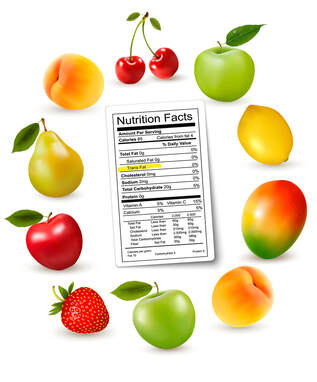Are you still struggling with a picky eater or maybe worried about the possibility of eating disorders in children & teenagers?
Whether a fussy eating toddler, your older child's picky eating or your teenager's eating patterns, are taking the pleasure out of family mealtimes, rest assured you are not alone. Researchers suggest that problems related to childhood eating are extremely common. Whilst ‘picky eaters’ are frustrating and stressful to deal with, in the short term, this is unlikely to cause health problems. However, longer-term, a restricted diet with a limited variety of foods can lead to nutrient deficiencies (see below). A more difficult issue to reverse, is the psychological wellbeing and emotions that are then tied to mealtimes, for of both child and parent after months (sometimes even years!) of over the table conflict.
Therefore, how we approach this issue and the length of time the problem persists, is important in order to limit any long term impact.
Therefore, how we approach this issue and the length of time the problem persists, is important in order to limit any long term impact.
5 categories of picky eaters!
My experience both personally with my child and the many parents I’ve supported over the years has shown me that fussy eaters generally fall into certain categories or patterns:
- The strong-willed fussy eater - Fussiness and mealtime battles starts around the time a toddler learns they can say no and exert their free will! Usually a strong-willed or spirited child! They may have been a great eater up to this point. This type is often less about actually being fussy and more about the need for control and may have tantrums around what foods they want and are often tricky in other areas such as sleep or behaviour. However, they usually improve with time, depending on the how we as parent's respond. It can also develop later when an older child or teenager, as a way to exert control in certain situations.
- The sensitive fussy eater - Food & feeding may have always been an issue – maybe your child had reflux, didn’t progress well onto solid foods, seems very sensitive to textures and sometimes has accompanying tummy issues or food allergies / intolerances. This type is often very anxious about trying new foods and upsets easily if pushed. They sometimes seem to have little appetite and seem to be able to exist on very little! If left, this can become a long term problem that makes it harder to deal with, especially if there are underlying food intolerances or digestive issues that give them frequent tummy aches and so put them off eating.
- The on & off Picky Eater – this is the child where its not a big problem as they seem to go through phases of being very fussy, then eating ok and other times just being a bit picky. It can seem like they are just not that 'in to food'. They can often go under the radar as they eat ok but just not great and so over time may be missing out on the full range of nutrients.
- The tween or teen picky eater – Eating may or may not have been an issue at all when they were younger but gradually certain foods are being avoided or restricted. This may be accompanied by decision to become vegetarian or vegan, have concerns around weight or body image or be having a difficult time with school or relationships. This type should be kept a close eye on as it is a high risk age for problem eating to become eating disorders in children. Sometimes, it is just that they seem to only want to eat junk! With this age group, it is important to find a way for the child to be onboard, and often they take advice better from someone other than their parents!
- The 'More than just being fussy' eater - there is a condition medically recognised known as Avoidant Restrictive Food Intake Disorder (ARFID) which is a form of eating disorder effecting children and adults. It is not them just being fussy but an extreme avoidance of certain foods or types of food and can lead to failure to grow and gain weight in a child or weight loss. This child is likely to be extremely anxious around certain foods, almost like a phobia and may even not be able to come to a table where others are eating. It is a quite rare and is managed in a slightly different way.
Whichever picky eater you are dealing with, there are usually no quick fixes but with a consistent approach, tailored to your fussy eater and with my support,
you will see improvements over time.
Some signs & symptoms of nutrient deficiencies in toddlers & older children:
|
I will be forever grateful!"I took my daughter, aged 3, to see Clare after two years of no fruit or vegetables and very controlled eating. I was worried how anyone could get through to her knowing how incredibly strong willed she is! But within the first session Clare had ‘got her’ and with constant perseverance managed to breakdown barriers. Clare’s warm nature meant my daughter couldn’t wait for her food exploring sessions. Clare gave my daughter back the power to make her own choices and not be scared of foods. Slowly but surely her attitude towards food has changed, she is now, aged 4, excited for meal times and visiting new restaurants and Clare’s name regularly gets referred to when she is excited about new foods."
Sophie |


